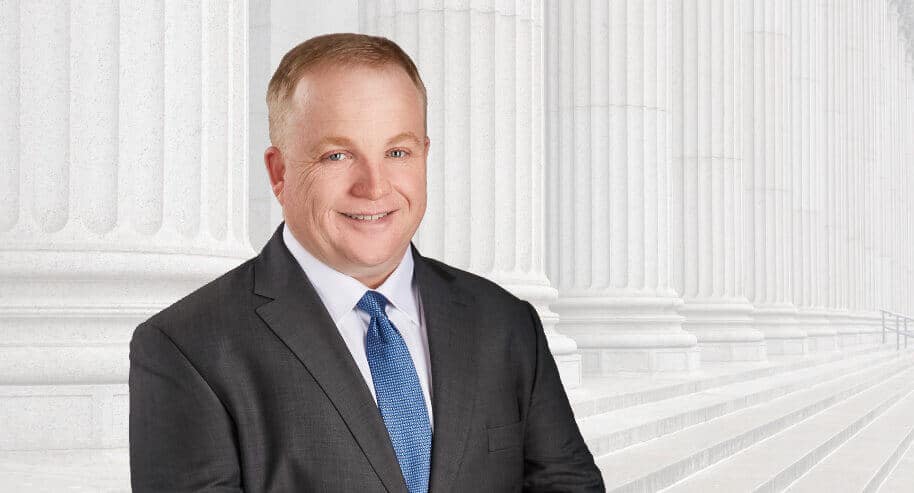
Even if you are not currently ill, it is advisable to consider the types treatment you would like and who you want making decisions about your medical care if you are unable to make them for yourself. In North Carolina, the primary method of designating a trusted individual to make medical decisions is with a health care power of attorney.
A health care power of attorney is an essential part of any estate plan. However, many people neglect to do this until it is too late. North Carolina estate planning lawyer Jonathan Breeden can draw up a North Carolina health care power of attorney to serve your needs and answer any questions you may have about the process.
If you have questions, call Breeden Law Office at (919) 661-4970 and schedule a consultation.
A healthcare power of attorney is a legal instrument by which you authorize another person to make medical care decisions on your behalf (called a health care agent). Your health care agent will have the authority to make decisions about your health care when you are not able to do so because of illness or incapacitation. You can also appoint alternate health care agents should your first choice be unable or unavailable to act on your behalf.
A health care power of attorney only becomes effective after a licensed physician or mental health care provider determines that you are unable to make or communicate these decisions for yourself. It is important to understand that a health care power of attorney is not just applicable at the end of life, but whenever you are unable to make your own health care decisions.
A health care power of attorney gives someone the authority to make a broad range of health care decisions including, but not limited to:
You do have the right to specifically limit the scope of your health care agent’s powers, including instructions to refuse certain kinds of treatment. You can also have both a living will and a health care power of attorney.
With regard to end-of-life care, you can have the health care power of attorney direct your health care agent to make decisions consistent with the wishes stated in the living will.
Health care directives made in advance are the best way to make sure your future medical decisions truly reflect your values and preferences. You should not assume that your loved ones will be able to agree on the best course of action should you become incapacitated.
A health care power of attorney can help prevent disputes among family members by making it clear who you want making medical decisions on your behalf.
The person you choose to be your health care agent should be someone you trust, knows you well, and is emotionally capable of carrying out your wishes. Regardless of who you decide to be your health care agent, it is in your best interest to have a conversation with your loved ones about your goals and wishes for your future health care.
To make a health care power of attorney legally binding, you must (1) sign and date the document (2) in the presence of two witnesses. The document must also be certified by a notary public. There are certain statutory limitations on who can serve as a health care agent and witness. Once you have executed a health care power of attorney, you should provide a copy to your physician, designated health care agent, and keep a copy on file for yourself.
Health care powers of attorney can be revoked so long as you are capable of making and communicating your own health care decisions. Revocation can be accomplished by executing and acknowledging an instrument of revocation or in any manner by which you are able to clearly communicate your intent to revoke.
North Carolina Power of Attorney Forms allow individuals to legally appoint someone to represent their interests in certain predetermined situations.
This authority can be granted in a variety of situations and circumstances. For instance, a durable POA allows someone to handle a various financial matters for you, if you become incapacitated. A healthcare POA on the other hand appoints an agent to represent your wishes by making medical decisions for you should you be incapacitated or unable to communicate. Others Power of Attorney forms are used in more limited scenarios, such as title transfers or tax matters in business transactions.
Here are some common POA forms, but it is important to review the document carefully with guidance from a legal professional to ensure you are using and executing the correct document for your needs.
Durable Power of Attorney – Used in long-term estate planning to appoint someone to handle your financial affairs in the event you are incapacitated.
Health Care Power of Attorney – For use in health care situations where you cannot communicate your wishes. This allows you to appoint someone to handle medical decisions on your behalf. It is important that the person chosen is aware of your treatment preferences.
Revocation of Power of Attorney – This form is used when removing someone’s authority under a previous POA. When revoking a POA from an individual, it is important to communicate this fact to all parties involved to avoid confusion and disputes when decisions must be made.
Once the appropriate documents are completed and a trusted individual is designated as your POA, it is best to have the forms reviewed by an experienced and knowledgeable estate planning attorney. From there, you can take any required next steps, like filing the documents with the clerk of court or ensuring they are legally binding.
The state has strict rules in place as to what constitutes a valid Power of Attorney, and a high level review at this stage can save precious time if decisions need to be made quickly down the line. In addition, an estate planning lawyer can evaluate your situation, the directives you want to put in place, and ensure the proper forms and designations are selected. This can protect you from being taken advantage of later or spare you from critical oversights when planning for your future.

At Breeden Law Office, we are here to explain your advance care directive options and help you determine which types of documents are right for you. Attorney Jonathan Breeden has extensive experience preparing living wills, health care powers of attorney, and durable powers of attorneys.
He has helped countless individuals throughout North Carolina accomplish their estate planning goals and is ready to begin assisting you today. Contact us today at (919) 661-4970 to discuss your options.
Call Breeden Law Office today:
Call (919) 661-4970